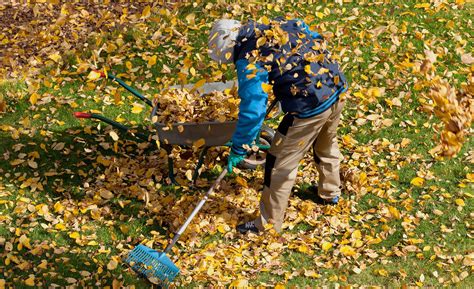Overview
Groundskeepers, also known as landscape maintenance workers, are responsible for maintaining the appearance of outdoor areas such as parks, golf courses, and commercial properties. They perform a variety of tasks, including mowing, trimming, weeding, planting, and watering.

Educational Requirements
The minimum educational requirement for a groundskeeper is typically a high school diploma or equivalent. However, some employers may prefer candidates with post-secondary education in horticulture, landscape design, or a related field.
High School Diploma or Equivalent
A high school diploma provides students with the basic academic skills necessary for success in the field of groundskeeping. Courses in science, mathematics, and English are particularly important.
Post-Secondary Education
Post-secondary education in horticulture, landscape design, or a related field can provide students with the specialized knowledge and skills needed for success in the field of groundskeeping. These programs typically cover topics such as plant identification, care and maintenance, landscape design, and pest control.
Skills and Experience
In addition to formal education, groundskeepers also need to possess a number of skills and experience, including:
- Physical fitness: Groundskeepers must be able to perform a variety of physical tasks, such as mowing, trimming, and weeding.
- Attention to detail: Groundskeepers must be able to pay attention to detail and ensure that all tasks are completed to the highest standard.
- Customer service skills: Groundskeepers often interact with customers, so they must be able to communicate effectively and provide excellent customer service.
Certifications
There are a number of certifications available to groundskeepers, including:
- Certified Landscape Technician (CLT) from the Professional Grounds Management Society (PGMS)
- Certified Arborist from the International Society of Arboriculture (ISA)
- Certified Pesticide Applicator from the National Pest Management Association (NPMA)
Certifications can demonstrate to employers that groundskeepers have the knowledge and skills necessary to perform their jobs to a high standard.
Career Outlook
The job outlook for groundskeepers is expected to be good over the next few years. As the population grows and more people move to urban areas, there will be an increasing demand for groundskeepers to maintain outdoor spaces.
Employment
According to the Bureau of Labor Statistics (BLS), there were 1.3 million groundskeepers employed in the United States in 2021. The BLS projects that employment of groundskeepers will grow by 8% from 2021 to 2031, which is faster than the average for all occupations.
Wages
The median annual wage for groundskeepers was $30,230 in May 2021. The lowest 10% of earners made less than $21,330, and the highest 10% of earners made more than $44,860.
Tips for Success
Here are a few tips for those aspiring to a successful career as a groundskeeper:
- Get a good education: The more education you have, the better your chances of landing a good job and advancing in your career.
- Develop strong skills: In addition to formal education, you also need to develop strong skills in areas such as physical fitness, attention to detail, and customer service.
- Get certified: Certifications can demonstrate to employers that you have the knowledge and skills necessary to perform your job to a high standard.
- Network with other groundskeepers: Networking can help you learn about new job opportunities and stay up-to-date on the latest industry trends.
Conclusion
Groundskeeping is a rewarding career that offers the opportunity to work outdoors and make a difference in the community. With the right education, skills, and experience, you can achieve great things as a groundskeeper.
Additional Resources
- Professional Grounds Management Society (PGMS)
- International Society of Arboriculture (ISA)
- National Pest Management Association (NPMA)
